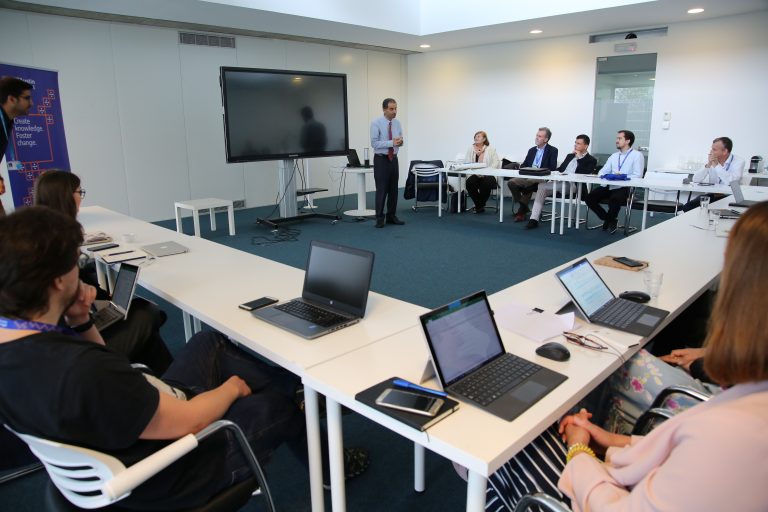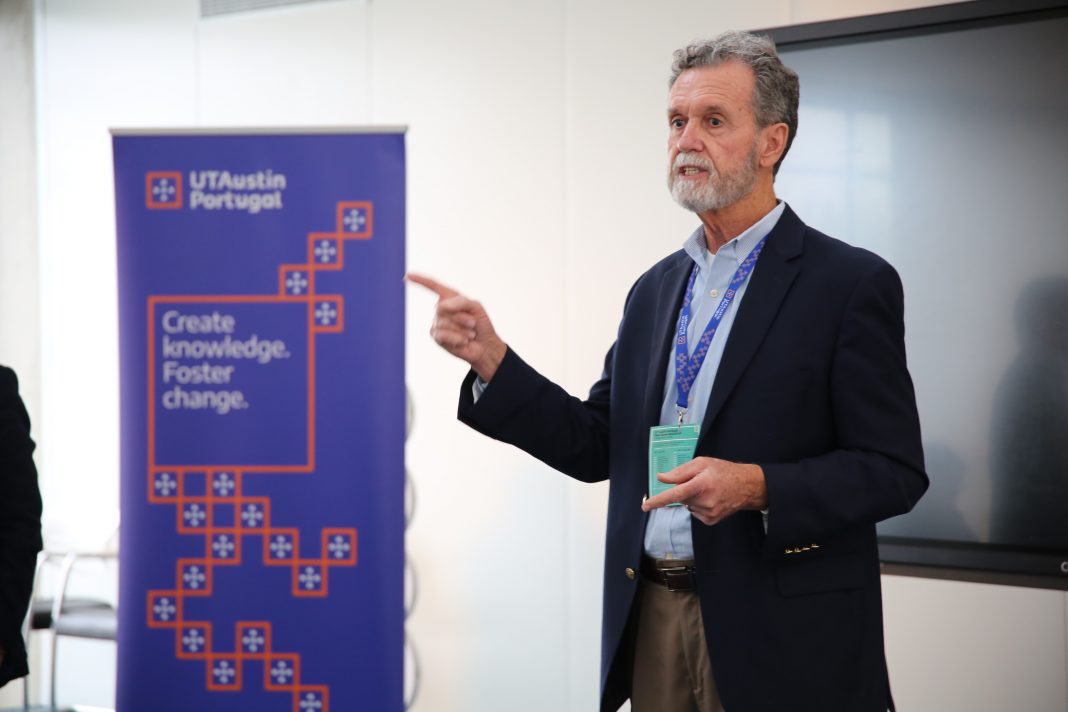Following the event last July, the New Space Hackathon 2019 final report is now made publicly available by the UT Austin Portugal Program. The author hopes the 2019 Hackathon has made the development of statistically robust insights easier for future editions.
Earlier this summer, the UT Austin Portugal Program, together with CEiiA, organized the New Space Hackathon 2019, led by Burke Fort (The University of Texas Center for Space Research – UTCSR). The event gathered a handful of Space R&D specialized groups, with the intent of discussing insights in order to optimize many emerging opportunities and initiatives in the global New Space Economy, in articulation with the Portugal Space 2030 strategy.
After the event, Burke Fort, Associate Director of UTCSR, worked on an executive report where he discussed the approach and methods used, culminating in its findings and conclusions. “The primary goal of this undertaking is to build a valuable forward-looking resource for Portugal’s space sector thought leaders and decision makers”, Fort writes in the report.
The New Space Hackathon 2019 took place throughout the course of two days, at CEiiA’s facilities, and assembled talented technical “Creatives” and experienced business “Enablers”. Both groups were engaged in a deliberative process to gather and examine opinions before and after a series of presentations, conducted by experts in specific issues. This approach was used to establish opinions on matters such as technical innovation potential, business potential and the readiness of Portugal’s Research and Technology Development (R&TD) ecosystem to compete in 53 “specialties”.

Although it a was small-sized group, Burke Fort believes Hackathon’s process “appears to be an effective protocol for future research” within Portugal and even New Space interests “beyond its borders.” The report features a number of collected data analyzed in the aftermath of the event. “If rigorous techniques are employed in future Hackathons, such reinforced process is likely to deliver highly probative results.”
The report is now publicly available, exclusively in the UT Austin Portugal Program’s website. You can refer the full version here.
Re-watch below the short interview conducted with Burke Fort, on the day of the New Space Hackathon event:

